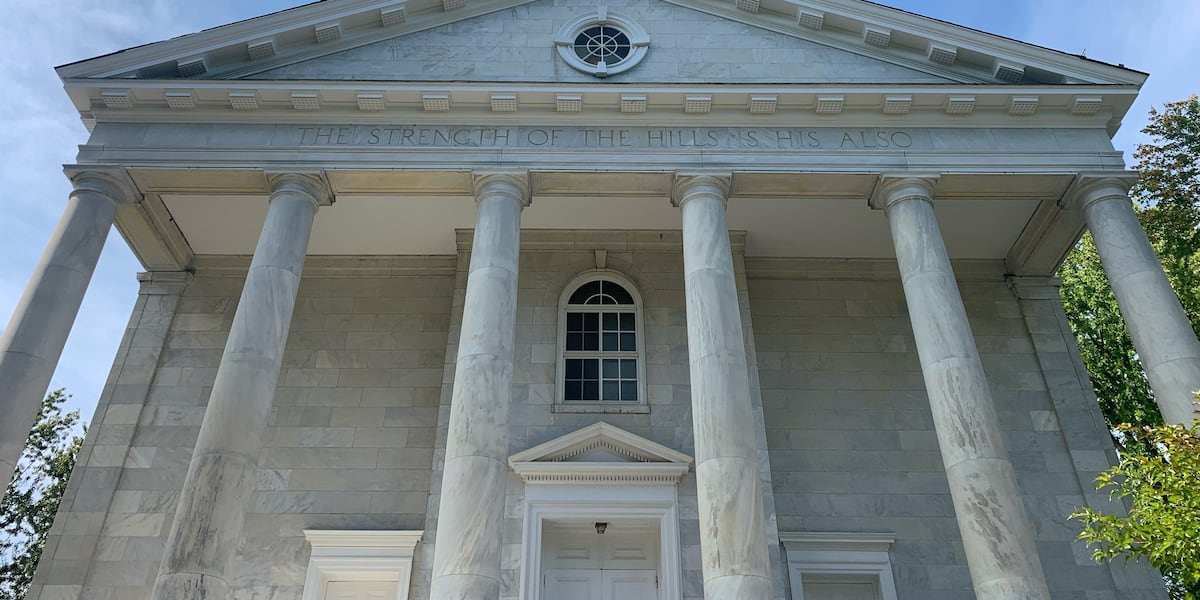Middlebury College Faces Cancel Culture Over Mead Chapel Controversy
Middlebury College’s Mead Chapel Controversy: A Cancel Culture Conundrum
Ah, cancel culture—a term that stirs up a cocktail of emotions, from fervent support to passionate opposition. At the heart of this debate is Middlebury College and its recent tussle over Mead Chapel, a historical structure that has become a flashpoint in discussions about tradition and inclusivity. What began as a seemingly innocuous conversation about the chapel’s legacy has spiraled into a complex web of accusations, disagreements, and passionate calls for both preservation and change.
So, what’s the fuss all about? Let’s dive deep into the controversy surrounding Mead Chapel and ponder how this gem of higher education is negotiating the tricky waters of modern cultural sentiments.
What’s the Backstory?
To understand the current landscape, we need to haul ourselves back to the origins of Mead Chapel. Constructed in the early 20th century, it has served as a place of worship, reflection, and community gathering. Like many historical sites, it carries with it a mix of beautiful memories and complicated histories.
Recently, however, a growing number of students and faculty have raised objections regarding the chapel and its namesake, which has drawn criticism for ties to problematic ideologies of the time. Enter cancel culture—a term thrown around like confetti at a parade, often misunderstood and misapplied, yet powerful in invoking change.
But what does it really mean to cancel something? It often involves withdrawing support from individuals, organizations, or, in this case, institutions that don’t align with contemporary values. While some view this as a necessary evolution, others see it as an alarming trend that risks erasing history.
The Controversy Heats Up
In light of these discussions, calls have emerged for renaming the chapel and reassessing its role on campus. The intersection between historical reverence and current relevance raises critical questions:
- Is it possible to honor a building’s heritage while acknowledging its founder’s flaws?
- Can a community develop without discarding all remnants of its past?
This isn’t just a Middlebury problem; it’s a nationwide conversation, played out in various forums, from college campuses to social media arenas. The uproar surrounding Mead Chapel showcases how college environments are evolving, sharply illuminating the tension between traditional academic values and modern social justice.
Voices in the Fray
A significant aspect of this controversy is the range of opinions resonating across the campus. Supporters of keeping Mead Chapel as is often cite the value of historical context. They argue that erasing the name removes an educational opportunity to engage students with the complexities of history.
On the other hand, opponents insist that retaining the name perpetuates harmful ideologies. They advocate for action, expressing that it fosters an environment where marginalized voices remain silenced. Comparing it to other social movements, some equate this to the need for accountability in confronting racism, sexism, and oppression throughout history.
In the midst of this complexity lies the reality that many students feel unheard and unseen. It begs the question: How does a college like Middlebury reconcile the need for historical discussion with the urgent desire for inclusivity?
The Role of Administration
The college administration finds itself in a tight spot. They’re tasked with representing a diverse body of students while maintaining institutional legacies. Balancing the scales isn’t easy, especially when each decision seems poised to ignite debate.
To address the situation, Middlebury’s administration has facilitated town hall meetings, campus discussions, and debates aimed at bringing all voices to the table. After all, isn’t higher education supposed to be about fostering dialogue and embracing diverse perspectives?
At the same time, these conversations can morph into battlegrounds where emotions run high, and the possibility for understanding can get lost amid heated rhetoric. For example, even a simple phrase like “historical landmark” can spark passionate disagreements about what history is worth preserving.
What’s Next for Mead Chapel?
So, what are the prospects for Mead Chapel’s future? There are a handful of paths that may unfold, each accompanied by its inherent challenges and opportunities:
Keep It: Honor the Tradition
One route is for Middlebury to keep the name intact while promoting discussions around its history. This approach emphasizes learning and confronting the past rather than hiding from it. It could involve integrating educational programs around the chapel, such as panels or lectures on the man after whom it was named, encouraging critical reflection.
Rename It: A Symbol of Progress
On the flip side, the college could decide to change the name altogether. A new moniker could inspire a sense of belonging for those who currently feel unwelcome. In doing so, the college would be taking a stand and making an unequivocal statement about its values. However, the challenges here include the narrative that a name change might suggest that the problematic history has been erased, which can be counterproductive.
Hybrid Approach: Education and Recognition
Another innovative option could be to rename the chapel but also ensure that its history is prominently displayed through exhibits or plaques. This solution recognizes the “problematic past” while still charting a new course for the future. A kind of ‘learning memorial,’ if you will, that serves as an invitation for ongoing dialogue.
Vox Populi: Community Vote
Lastly, the decision could be put into the hands of those who inhabit the college community. Holding a vote could empower students, faculty, and alumni to weigh in, fostering a sense of ownership over the institution’s values. While this brings democracy into the mix, it also risks deepening divisions.
The Bigger Picture: Cultural Reflection
This discussion surrounding Mead Chapel is not merely about a single building. It’s about broader societal issues that touch every facet of life. The challenge is clear: how to reconcile traditional values with the evolving landscape of modern norms?
As we address these controversies, it’s essential to recognize that change doesn’t happen overnight. The dialogues around culture, inclusion, and history require patience and a willingness to listen. After all, isn’t that what higher education is all about—learning from one another, navigating complexities, and fostering a community where all can thrive?
Conclusion
In the end, the controversy surrounding Middlebury College and Mead Chapel serves as a microcosm of larger societal debates. With its intricate layers of history, emotion, and the ever-present tug-of-war between tradition and progress, this issue invites each of us to reflect—what legacy do we wish to uphold, and how can we grow toward a more inclusive future without dismissing the past?
As we continue to examine the conversations unfolding at Middlebury, it’s worth pondering how similar dialogues can enrich our understanding of other institutions grappling with their own historical baggage.
FAQs
1. What is the controversy surrounding Mead Chapel at Middlebury College?
The controversy involves debates about the chapel’s historical significance and its namesake’s controversial past, inciting discussions about cancel culture and the relevance of tradition in modern society.
2. What are the arguments for keeping the chapel’s name?
Supporters argue that retaining the name allows for critical engagement with history and prevents erasure of important discussions about the past.
3. Why do some students advocate for renaming Mead Chapel?
Advocates for renaming express that the current name perpetuates problematic ideologies and fails to acknowledge the needs of marginalized voices on campus.
4. What are potential solutions to the controversy?
Possible solutions include keeping the name with educational initiatives, renaming it entirely, a hybrid approach that honors both history and progress, or putting the decision to a community vote.
5. How does this controversy reflect wider social conversations?
The debates surrounding Mead Chapel echo national discussions about tradition versus progress, highlighting issues of inclusivity, accountability, and the importance of dialogue in educational settings.







